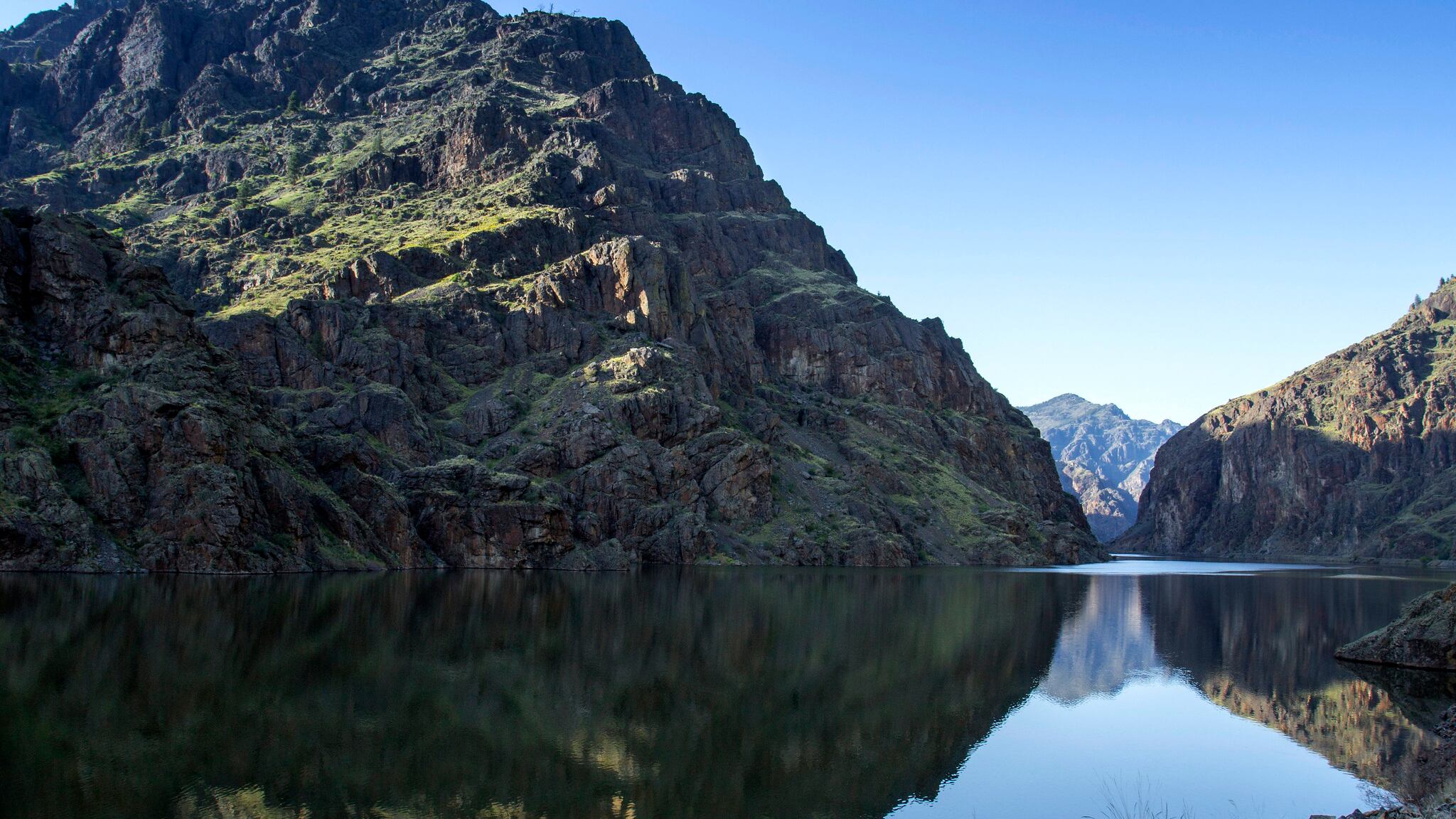U.S. Rep. Mike Simpson (R-Idaho) yesterday unveiled a framework to removing four dams on the Lower Snake River and investing to restore the Columbia River system to health, while also replacing the dams with new green energy infrastructure. Total cost of the concept: $33.5 billion, a price tag Simpson termed in the proposal he released as "very expensive."
"However, this may prove to be a bargain when compared to what it may cost in out-of-pocket dollars for fish recovery and future costs put on stakeholders," he added.
It's a groundbreaking proposal timed to coincide with President Joe Biden's plan to invest heavily in green energy as a way to address climate change.
The Snake River runs through Idaho and along the Idaho-Oregon border before joining the Columbia in southeastern Washington state.
As far back as 2000, then-Gov. John Kitzhaber created a firestorm when he proposed removing the four Snake River dams to preserve endangered salmon runs.
A lot has changed since then: The Bonneville Power Administration, which operates the hydroelectric system along the Columbia and its tributaries, has poured billions of dollars into trying to save salmon as a result of lawsuits filed by environmental groups. It hasn't worked.
"Despite spending over $17 billion on fish recovery efforts, Idaho salmon and steelhead numbers are not improving and will continue to get worse," Simpson said. "Will we spend $20 billion more in the next 30 years only to have them go extinct anyway? The worse they get, the more we will spend."
Removing the dams on the Columbia's tributary is just a small part of the package—which Simpson emphasized is a just a concept for which he's seeking regional support, rather than fully baked legislation.
He's also included proposals to accommodate the concerns of the farmers and shippers who send wheat and other products down the Snake and depend on the dams for irrigation; for BPA, which would see its borrowing limit doubled to help replace lost power generation; and to invest in water quality improvements, habitat enhancement and funding for a variety of other interests that might be economically harmed by loss of the dams.
Simpson, a dentist serving in his 11th term in the House, is banking on cooperation from the three other Columbia River basin states: Oregon, Washington and Montana, as well as numerous Native tribes. As a member of the House Appropriations Committee and ranking member of its Energy and Water Subcommittee, Simpson is in a position to put his seniority to work, but perhaps most important in the long-running debate over how to save salmon, he is a member of the party that has adamantly opposed dam removal.

He's making a pitch for cash at a time when investing in the country's green energy future is more popular in Washington, D.C., than it has been in a long time—and when Democrats (particularly Washington Gov. Jay Inslee, an outspoken environmentalist) control many of the levers of power in the Northwest.
"Most of us saw what happened to Northwest timber communities that were devastated by the spotted owl wars," Simpson concluded. "Is this our opportunity to avoid much of the social and economic pain and suffering that afflicted the timber families and communities when the mills closed, and the logging jobs were lost?"
Updated on Feb. 8 at 2:40 pm
On Monday, Gov. Kate Brown strongly endorsed Simpson's plan:
"I'd like to thank Rep. Simpson for working with a broad coalition of interested parties across the Northwest to craft this proposal, which will help us to build on the economic opportunities of the Columbia Basin and invest in a clean energy future," Brown said in a statement. "At the same time, we can restore the promise of healthy and abundant salmon and steelhead stocks for generations to come, while respecting the history and rights of the sovereign tribes that have been stewards of these rivers since time immemorial.

